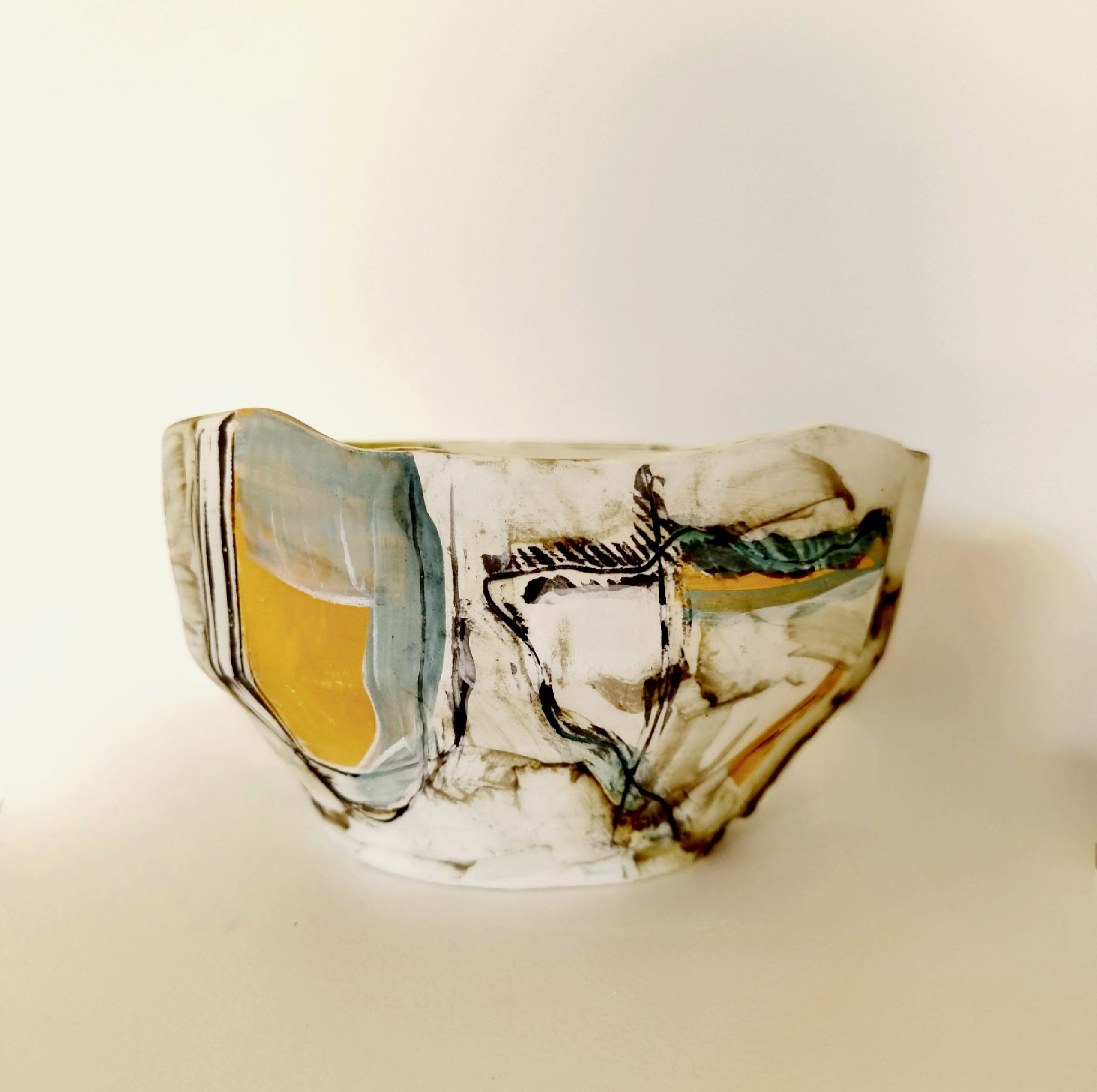It’s been quite a ride these past few months, as I completed my Honours / Creative Arts program at James Cook University and waited for my marks.
My main project, aptly titled “Changing Terrain,” combined the dual elements of Practice-led Research and a corresponding exhibition of artworks. For those who aren’t familiar with the concept, Practice-led Research is a unique blend of theory and application. It involves using artistic practices to investigate philosophical and academic questions. It’s like stepping into a whole new realm where academic curiosity meets ccreative practice.
With “Changing Terrain,” I decided to focus on how to embody the essence of a specific place, Deception Bay, in Brisbane’s Moreton Bay, through my ceramic work. The whole process was a walking expedition, exploring the contours of this interesting and beautiful locale, focusing on the materiality of place and producing artworks that reflect how I experienced it.
One interesting thing about practice-led research is that it’s like walking on two legs, where one leg is the hands-on experience of creating art and the other is the theoretical underpinnings. It’s a constant back and forth between exploring philosophical concepts and applying them to my craft.
My reading list during this time was, shall we say, pretty extensive for me. philosophers including Merleau-Ponty, Heidegger, Tim Ingold, Edward Casey, and Yi Fu Tuan featured quite a bit. Through their works, I was able to delve deeper into topics such as the phenomenology of place and experience, the intersections of truth, beauty, and morality in art, and what art means to different people.
Using the insights gleaned from these philosophical texts, and absorbing the influences of other artists including Brie Ruais, Roasalie Gascgoine, Jacqueline Scotcher and Marit Måkelå, I moulded my ceramic pieces, working to embody the essence of Deception Bay.
In hindsight, this project really underlined the benefits of practice-led research for my artistic practice. Not only did it allow me to further understand and articulate my creative process, but it also challenged me to think deeply about the philosophical and environmental concepts that inform my work.
Having come out the other side of this Honours year, I feel more in tune with my artistic voice and the power it holds. I’m glad its over though, so I can have a break and move on and to create a new body of work. I was toying with the idea or undertaking PhD, but will probably opt for a shorter research project such as a Masters in Fine Art at a Brisbane Uni. I have no desires to be an academic, nor are there many jobs in such a competitive field. I like research for what it does for my practice, but only in the context that I am able to build more informed stronger concepts for my work. I like to answer a few questions and walk alot before I let it all go and then just go a make work for several months.

Recent Comments